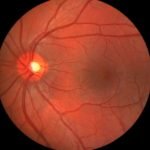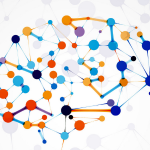Gene Associated with Elevated Risk of Cannabis Abuse
Node Smith, ND
New research from the Danish psychiatric project, iPSYCH, shows that a specific gene is associated with an increased risk of cannabis abuse. The gene is the source of a so-called nicotine receptor in the brain, and people with low amounts of this receptor have an increased risk of cannabis abuse.
Specific gene associated with an increased risk of cannabis abuse
Cannabis is the most commonly used illegal drug in both Denmark and internationally, and around one in ten users becomes addicted to the drug. Researchers from iPSYCH have discovered a gene that they associate with the abuse of cannabis.
Disorder associated with a genetic variant
We discovered that the disorder was associated with a genetic variant. This variant affects how much of a certain nicotine receptor is formed in the brain,” said Associate Professor Ditte Demontis from Aarhus University, who is behind the study
The genetic variant discovered by the researchers affects how much of a specific nicotine receptor is formed. People who have less of this receptor in the brain are at greater risk of becoming cannabis abusers.
iPSYCH Study
Ditte Demontis and her colleagues used a nationwide Danish cohort to analyse the complete genome of more than 2,000 cannabis abusers and the genome of 50,000 control subjects. The researchers subsequently repeated these findings in an analysis of a further 5,500 cannabis abusers and more than 300,000 control subjects.
Researchers also included the following in the study
The researchers also included genetic data from studies in which researchers examined the underlying genetics for cognition such as e.g. the ability to complete an education.
Here, they found that people with a higher number of genetic variants associated with impaired cognition also have an increased risk of cannabis abuse.
Genetics, cannabis abuse, or both?
“People who abuse cannabis often do worse in the education system, and our results show that this can be partly explained by genetics. That is to say that people with an abuse problem have more genetic variations in the genome which increase the risk of cannabis abuse, while at the same time negatively affecting their ability to get an education,” explains Ditte Demontis.
Study is the first of its kind
The study is the first of its kind on this scale and represents a step towards understanding the particular biological mechanisms, which lie behind the abuse of cannabis.
“We need to undertake even more research into how the genetic differences in the genome contribute to the development of cannabis abuse, and we need to map out the precise biological mechanisms that lead to one person having a higher risk of becoming a substance abuser than another. Our hope is to be able to improve treatment and perhaps in the long-term even prevent this abuse,” says Ditte Demontis.
Source:
- Demontis, D. et al. (2019) Genome-wide association study implicates CHRNA2 in cannabis use disorder. Nature Neuroscience. doi.org/10.1038/s41593-019-0416-1.
 Node Smith, ND, is a naturopathic physician in Humboldt, Saskatchewan and associate editor and continuing education director for NDNR. His mission is serving relationships that support the process of transformation, and that ultimately lead to healthier people, businesses and communities. His primary therapeutic tools include counselling, homeopathy, diet and the use of cold water combined with exercise. Node considers health to be a reflection of the relationships a person or a business has with themselves, with God and with those around them. In order to cure disease and to heal, these relationships must be specifically considered. Node has worked intimately with many groups and organizations within the naturopathic profession, and helped found the non-profit, Association for Naturopathic Revitalization (ANR), which works to promote and facilitate experiential education in vitalism.
Node Smith, ND, is a naturopathic physician in Humboldt, Saskatchewan and associate editor and continuing education director for NDNR. His mission is serving relationships that support the process of transformation, and that ultimately lead to healthier people, businesses and communities. His primary therapeutic tools include counselling, homeopathy, diet and the use of cold water combined with exercise. Node considers health to be a reflection of the relationships a person or a business has with themselves, with God and with those around them. In order to cure disease and to heal, these relationships must be specifically considered. Node has worked intimately with many groups and organizations within the naturopathic profession, and helped found the non-profit, Association for Naturopathic Revitalization (ANR), which works to promote and facilitate experiential education in vitalism.
Node Smith graduated from the National University of Natural Medicine (NUNM) in 2017, and is currently licensed as a naturopathic physician in Oregon and working towards becoming licensed in Saskatchewan, Canada as well.










